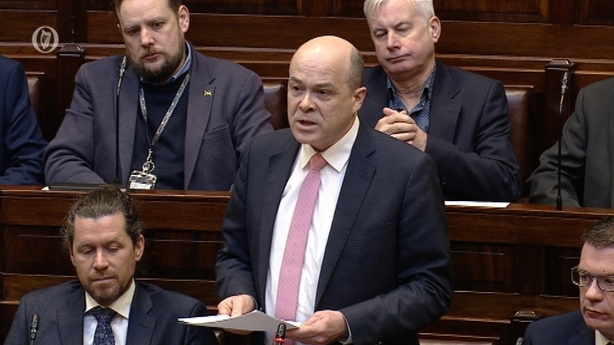The Oireachtas Committee on Social Protection is examining proposed new pension laws, including whether workers as young as 16 should be automatically enrolled in a State pension scheme unless they opt out.
Chair of the committee, Independent TD Denis Naughten explained that the proposed legislation would mean that from the age of 23, workers would automatically be enrolled in a pension scheme but below this age they can opt out.
"The idea is to try and make provision for people when they reach retirement, that they have an adequate income.
"The committee heard evidence from the Irish Congress of Trade Unions who made the argument that if someone starts full time work prior to being 23 years of age, that they're not automatically enrolled and that they would have to voluntarily opt into the scheme and the recommendation was that it should be tied in in line with people paying PRSI," he said.
Speaking on RTÉ's Morning Ireland, he said the income threshold is currently set at €20,000 but the committee wants to change this as lower paid workers are adversely affected by not having pensions.

"We heard a lot of evidence, particularly in relation to the impact that this could have on women because while their gross income may only be less than €20,000, the household income could be considerably higher and there is an opportunity for those women to automatically opt into and pay PRSI or pay pension contributions so that they have a supplementary pension when they retire.
"So, the idea is to have this additional safety net here to enroll as many people as possible initially and then based on their individual circumstances, allow them to opt out rather than leaving them out in the first place."
He said that there is an "area of contention" between the committee and the Government in relation to tax.
He explained that people who contribute through the current system would benefit more from their contributions but under the new auto-enrollment scheme, the worker would lose out and get less dividends in the end.
Mr Naughten said the Government has to look at the taxation and it needs to be "equalised".
He said this is something that will take a period of time to sort out.
"We're saying that after the legislation is enacted, it will take approximately two years to put this system in place and we believe that in the end term, the Government does need to look at the overall taxation relief for pension fund."
There is not enough clarity around how the funds could be drawn down, he said.
We need your consent to load this rte-player contentWe use rte-player to manage extra content that can set cookies on your device and collect data about your activity. Please review their details and accept them to load the content.Manage Preferences
"That fund is locked away until they retire unless due to ill health that they retire early.
"And this is another issue that the committee was very animated about, the fact that we don't know the detail of how that money can actually be drawn down, what is going to be the tax treatment of that money and how will that money be subsequently invested to actually provide a dividend or pension to the employee, and we believe that needs to be clarified now before the legislation is enacted."
The committee does not think the pension age should be increased, he said, especially if people pay into a pension scheme from an earlier age.
"We believe that the pension age shouldn't be increased and we believe that there is sufficient ability within the system to pay for those pensions beyond 2070, if we can increase workforce participation rates.
"We've seen over the Covid pandemic that workforce participation rates went up by 2% and we believe that actually supporting women in paid employment, through childcare, through addressing anomalies in this proposal here, will ensure that we have more people paying into the PRSI fund that will make it far more sustainable in the long term."

